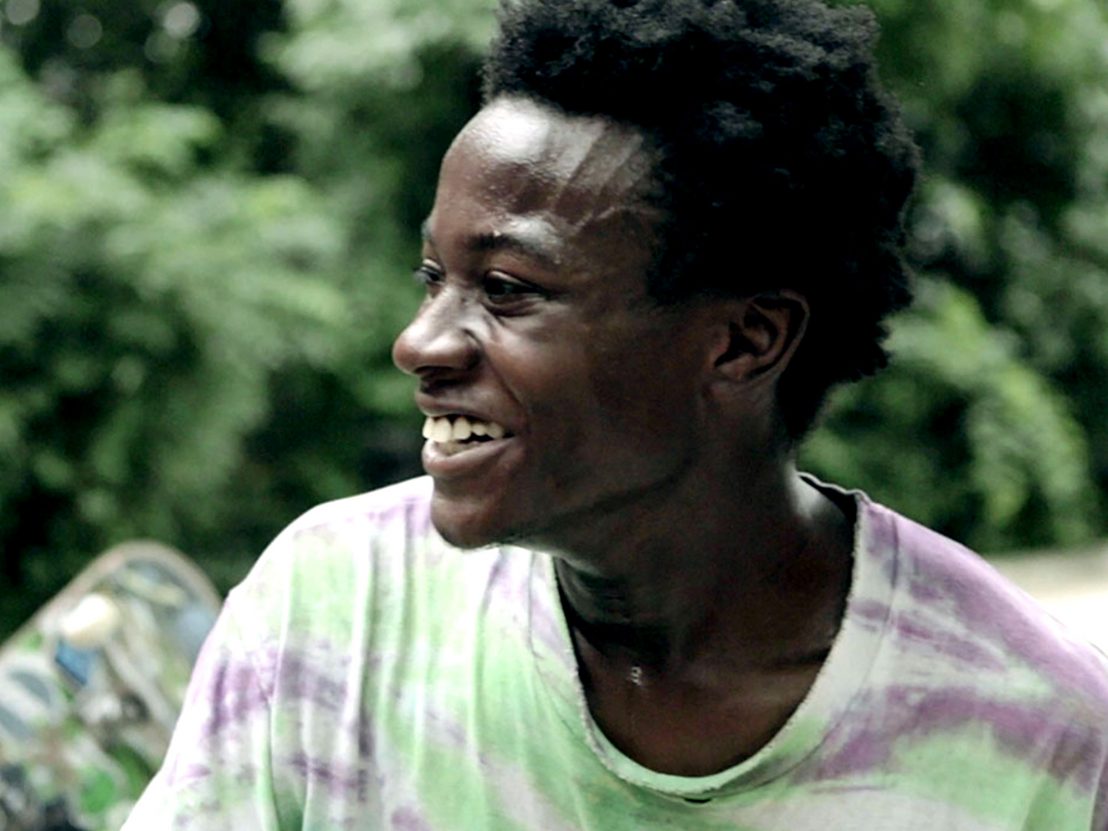
Three outstanding new films at this year’s CPH:DOX presented illuminating responses to this question.
“It takes a very long time to become young,” said Pablo Picasso, quoted in Jean Cocteau’s book ‘The Hand of a Stranger’ – but the reverse can be true too, as displayed in three first-time features about young people which screened recently at CPH:DOX. For these folks the burden of adulthood arrives all too quickly, as they are forced to reckon with problematic families, identity issues, tough responsibilities and the other grim realities that adult life brings.
“Your whole life, society tells you to be a man,” laments Zach, one of the three troubled young protagonist skaters in Bing Liu’s remarkable Minding the Gap. “Nobody knows what the fuck they’re doing,” he argues, but his path seems to have gone particularly astray. “We have to grow up, and it’s gonna fuckin’ suck.”
All three boys come from volatile homes. Zach, a part-time father and unstable partner, has trouble connecting his current behaviour with the contours of his past. Conversely, Bing – who features both in front of and behind camera – is unable to stop making these connections in his own life, fearful that the abuse he received from his father might become paralysing, or worse, self-perpetuating. The third character, Keire, who similarly fell victim to an overly stern father, sits somewhere in between. Increasingly aware of the wrongdoing he received, he is blind to its ramifications.
As they skate and grow together, Liu records constantly. Rolling in fluidly filmed skate-tapes from their early years together with observational material made later, he creates a rhythmic, flowing chronicle of their shared lives, and also of the town they live in. Interspersed audio elucidates what it means to grow up in the rust belt of Rockford, Illinois, a place with few employment opportunities, mass population exodus, and a distinct problem with violence, mostly (and pertinently) domestic.
Skateboarding acts as not just the glue that keeps them together but that which fixes them too. When Keire states that it’s not a hobby but a “life or death thing”, he touches on something. “It’s weird, it’s just really difficult for me to explain right now”, he says, wearing a crooked smile. Much that they are able to say comes funnelled through all sorts of filters; Zach even calls filmmaking “free-therapy”. Masculinity pressurises and internalises. Bing brings it out, using the form of his film as a release.
Another film featuring a young male trio is Chase Whiteside and Erick Stoll’s América, a title referring not to the nation but to a person. América is the brothers’ 93-year-old grandmother, a frail, fatigued but nevertheless resilient woman who has fallen under their collective charge. To state that they rise to the occasion seems an understatement; rare is it to see such commitment to care.
Besides intermittent – slightly too literal – narration, the film is entirely observational, recording in a roving camera that shows much compositional consideration and seems to capture everything, without being invasive. The filmmakers move in and out of proximity as the situation requires, and the trust of the participants comes across in the material.
As the brothers bathe América, change her, feed, walk and entertain her, it is never quite clear how cognisant she is. In between in-depth debates over her digestive cycles and her mental acuity (care is logistical and bureaucratic too, after all), they squabble over their relative contributions and about what she might want or think. Raised pulses turn to thrown fists and much more besides, and the mounting pressures of the increasingly herculean shared task they’ve taken on threatens a fracture.
Early on, América asks why the filmmakers are recording her. “Because you’re a star,” answers Diego, the youngest and most attentive brother, instinctively and with a huge grin. And while in many ways she is, neither she nor the brothers are ultimately the film’s prime subject. An honest, intimate treatise on kindness, América is a film about what it means to have the best years of your life interrupted by the duty of care, and what’s more, to want that to happen.
The young protagonists come off less favourably in Nicolas Peduzzi’s Southern Belle, a squalid, sordid profile of Taelor, the daughter of a deceased Texan multi-millionaire, and the band of uncouth characters she surrounds herself with. Under the punishing, probing gaze of the French director – a marked outsider to the Southern-American milieu observed – no one comes off well, nor do they seem to have any desire to.
Brandishing an armoury of drink, drugs and assault rifles, Taelor and her boyfriend cruise the city at nights self-destructively, spouting self-involved diatribes and racist tirades to camera whilst intoxicating themselves into oblivion. Several sequences stand out. In one, Taelor pirouettes in a Walmart carpark, the camera pivoting around her as she dances the night away. In another, her uncle – a cocaine-addled caricature so absurd no satirist could write him – berates her for the lies she tells herself about her life and past, entirely unaware of his own contradictions.
It is a tough watch, certainly, but behind the nihilism hopefully lies something more desperately human. “Maybe it’s pompous and self-conceited, but I believe it,” Taelor says at the end of another incoherent vodka-monologue, unwittingly summarising the film’s thesis in a single sentence. We are shaped by the stories we tell ourselves; become too enveloped in your own fictions and you might find yourself not just lost to the world, but a stranger to even yourself.
Alongside an effective synth score, Peduzzi interjects pensive spoken narration from Taeler, storytelling that is asynchronous to the on-screen action but comes to inform perception of it. As she describes her past, her relationship with her father, and how his passing when she was 14 “compromised [her] life for the decade to follow”, she seems sympathetic – sensitive and vulnerable in a way she that won’t let herself be when observed. Can the experience of grief shatter someone entirely, if it falls at such a crucial juncture in their life? It takes a very long time to become young, but you sure can grow old fast.
For more on this year’s CPH:DOX festival visit cphdox.dk
Published 20 Mar 2018

This Keanu Reeves-starring drama is a poignant tale of teenage apathy.

Some of the world’s leading documentarians take the pulse of an ever-changing artistic medium.

By Adam White
From Small Soldiers to her collaborations with Sofia Coppola, a generation of moviegoers have grown up alongside the American star.